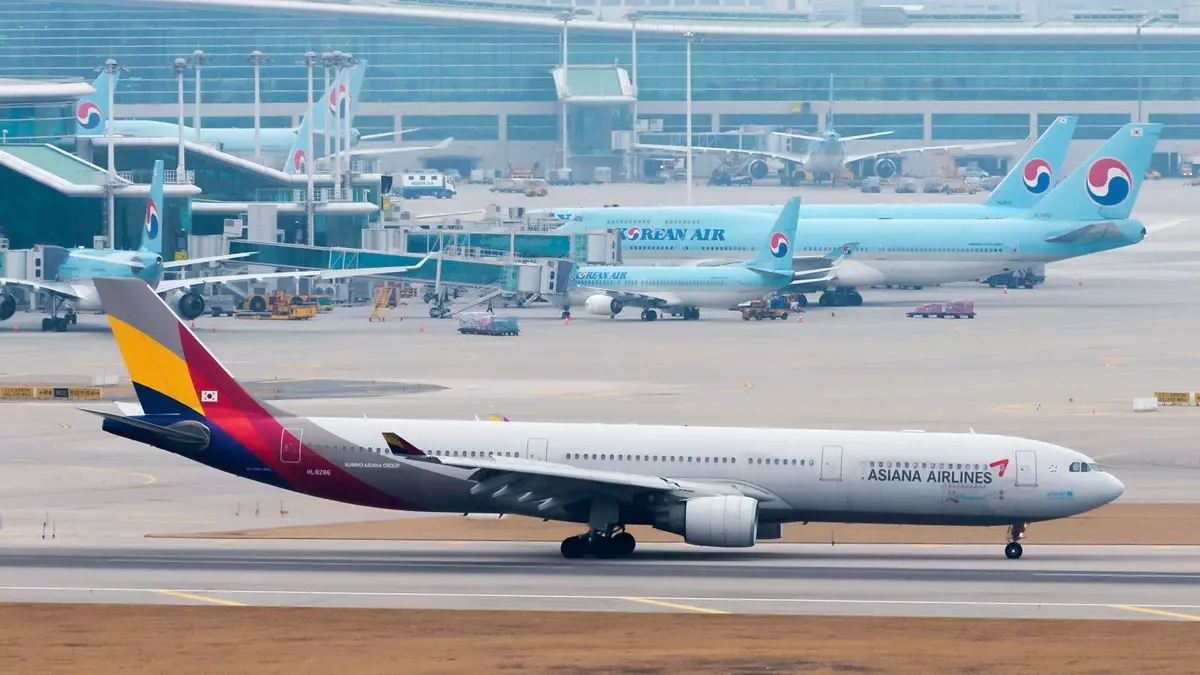In a significant move within the aviation sector, Korean Air has successfully finalized its acquisition of Asiana Airlines, marking a pivotal shift in South Korea’s airline landscape. With a price tag of $1.3 billion, this acquisition grants Korean Air a commanding 64% stake in Asiana, positioning it as the dominant player in the South Korean market. This merger, a product of negotiations that began amidst the global disruptions caused by the Covid-19 pandemic, elevates Korean Air’s status from the 22nd to the 11th largest airline worldwide based on international weekly seat capacity.
The ramifications of this merger extend beyond mere numbers; Korean Air now controls a staggering 47% of the international airport market share in South Korea, integrating both its operations and those of Asiana. This consolidation is compounded by the inclusion of low-cost carriers such as Jin Air, Air Busan, and Air Seoul under the Korean Air Group umbrella. By aligning these brands, Korean Air aims to enhance operational efficiency and offer a more unified travel experience for consumers. This strategic alignment illustrates an aggressive approach to increasing market dominance while catering to a diverse customer base.
The journey toward this merger was not devoid of challenges, particularly regarding regulatory approvals. The European Commission’s endorsement came as a relief after intense scrutiny of the transaction. However, Korean Air’s proactive measures to satisfy competition concerns, such as leasing four Boeing 787s to Air Premia, exemplify the strategic adaptations companies must consider during mergers. By bolstering competition on significant routes to the U.S., Korean Air is not simply complying with regulatory demands but is also positioning itself as a responsible industry leader willing to promote economic vitality in South Korea.
While the Asiana brand is set to continue its operations, the next two years will be crucial for the full integration of the two airlines. This transitional phase will demand effective management to ensure customer loyalty while harmonizing policies and services across the board. The retention of the Asiana brand could serve not only as a nostalgic link for customers but also as a strategic maneuver to reach diverse market segments until a fully unified brand identity is established.
Korean Air’s acquisition of Asiana Airlines signals a transformative era for South Korea’s aviation industry. As the merger enhances market competitiveness and operational synergy, it also reflects broader trends within the airline sector to consolidate resources and capabilities in response to changing market dynamics. As regulatory approvals continue to play a critical role in shaping such deals, the successful integration of Korean Air and Asiana could redefine the travel landscape in Asia and beyond, setting a precedent for future mergers in the global aviation market.


Leave a Reply